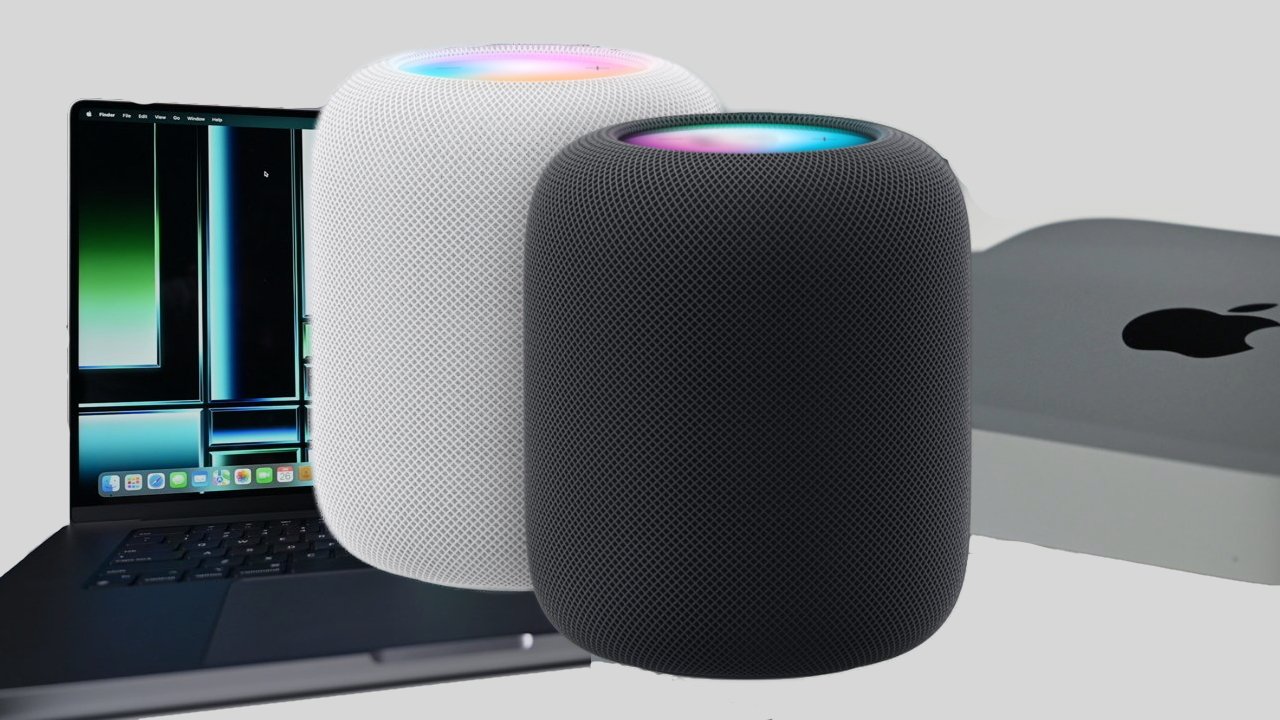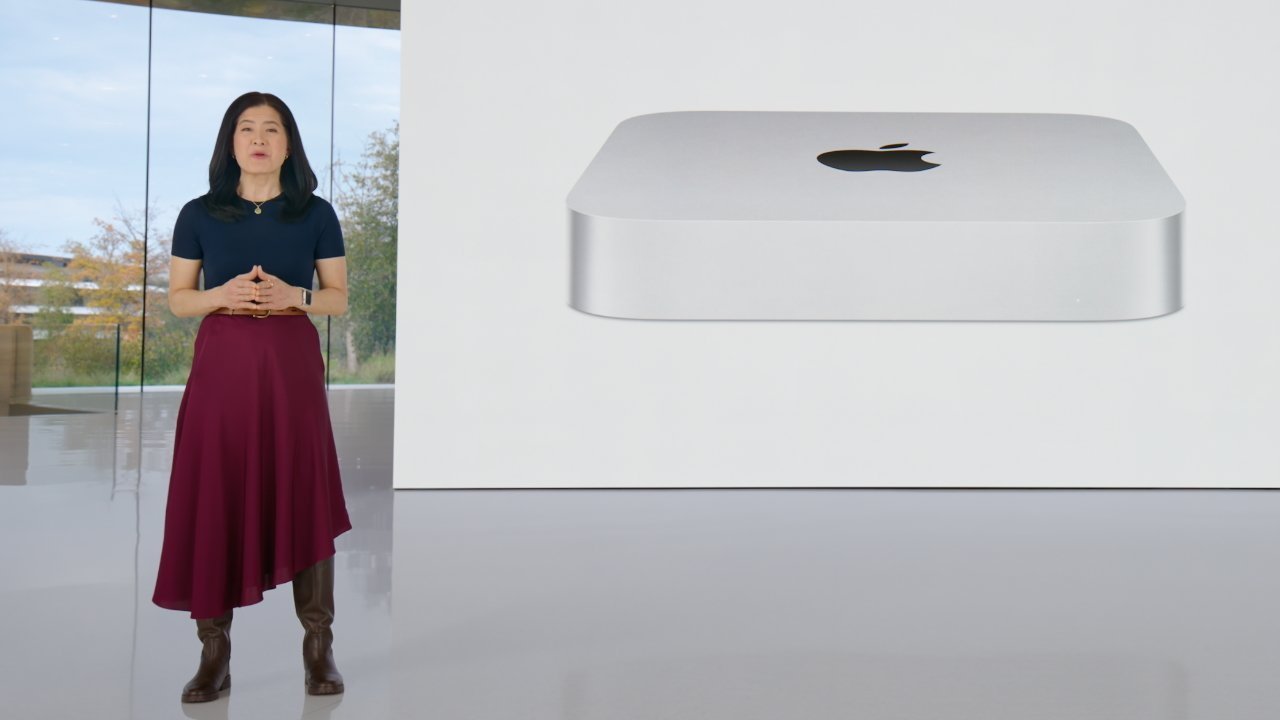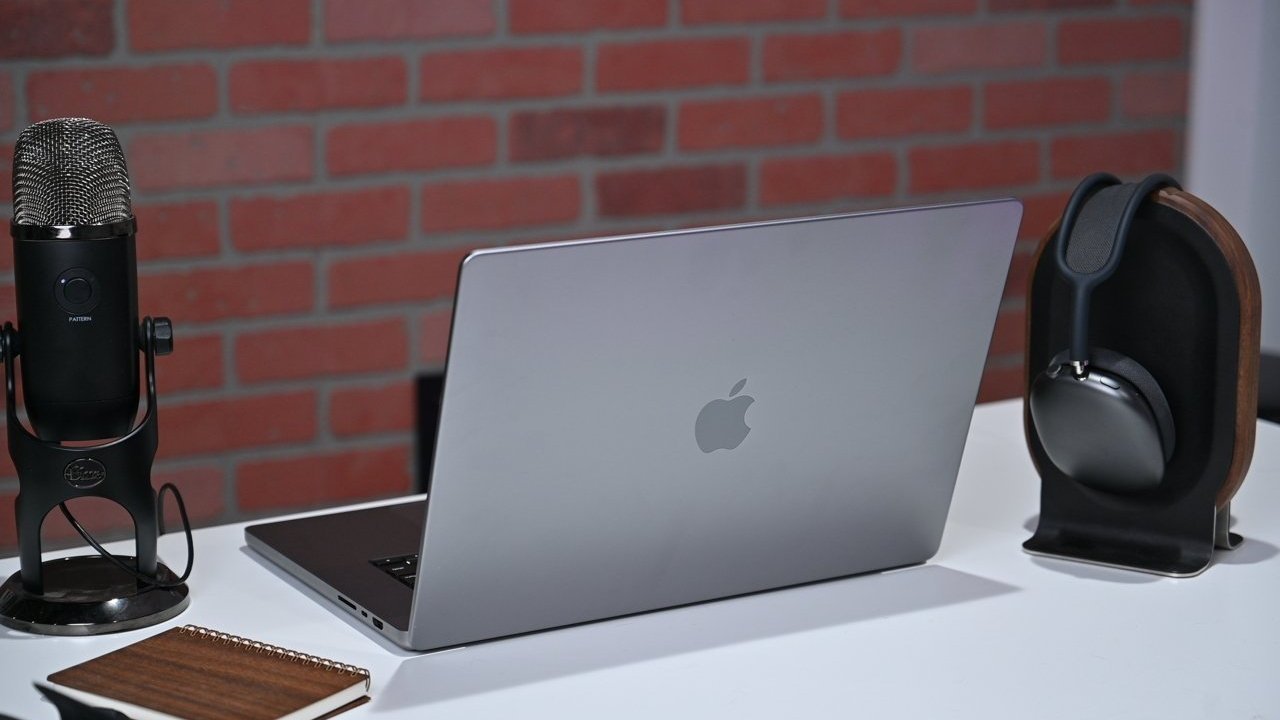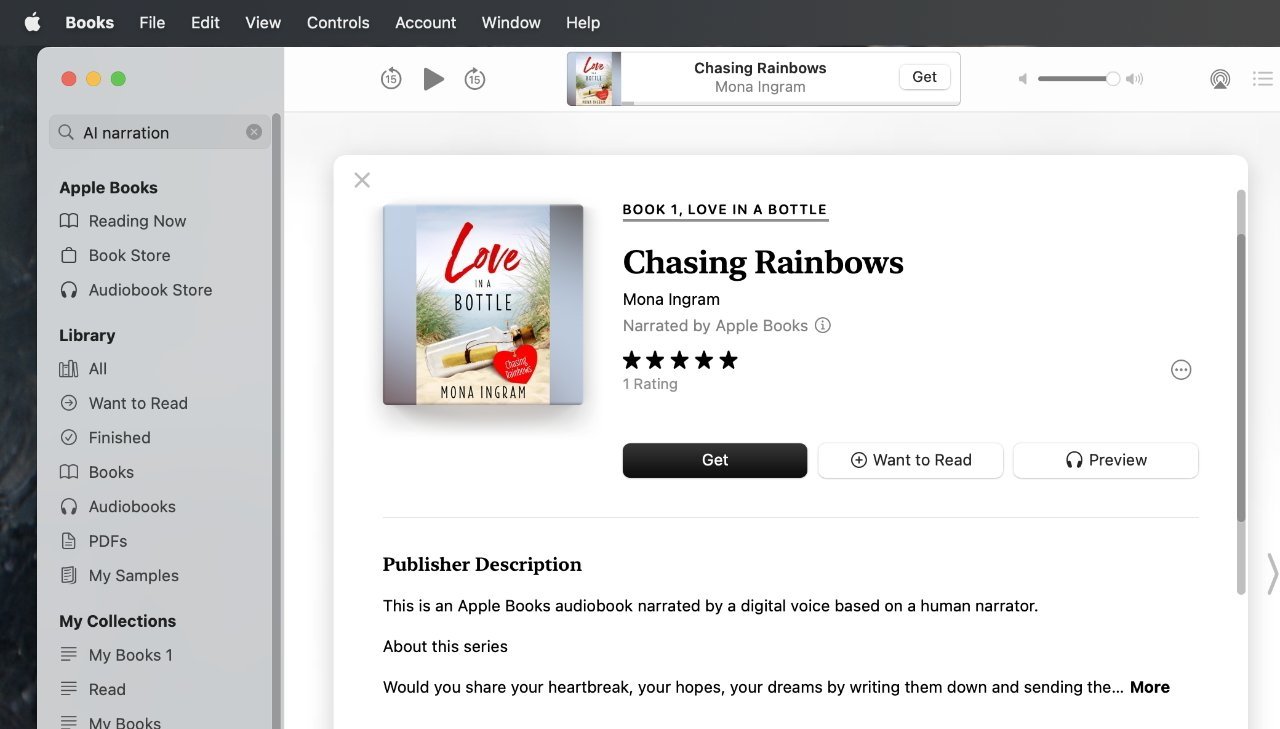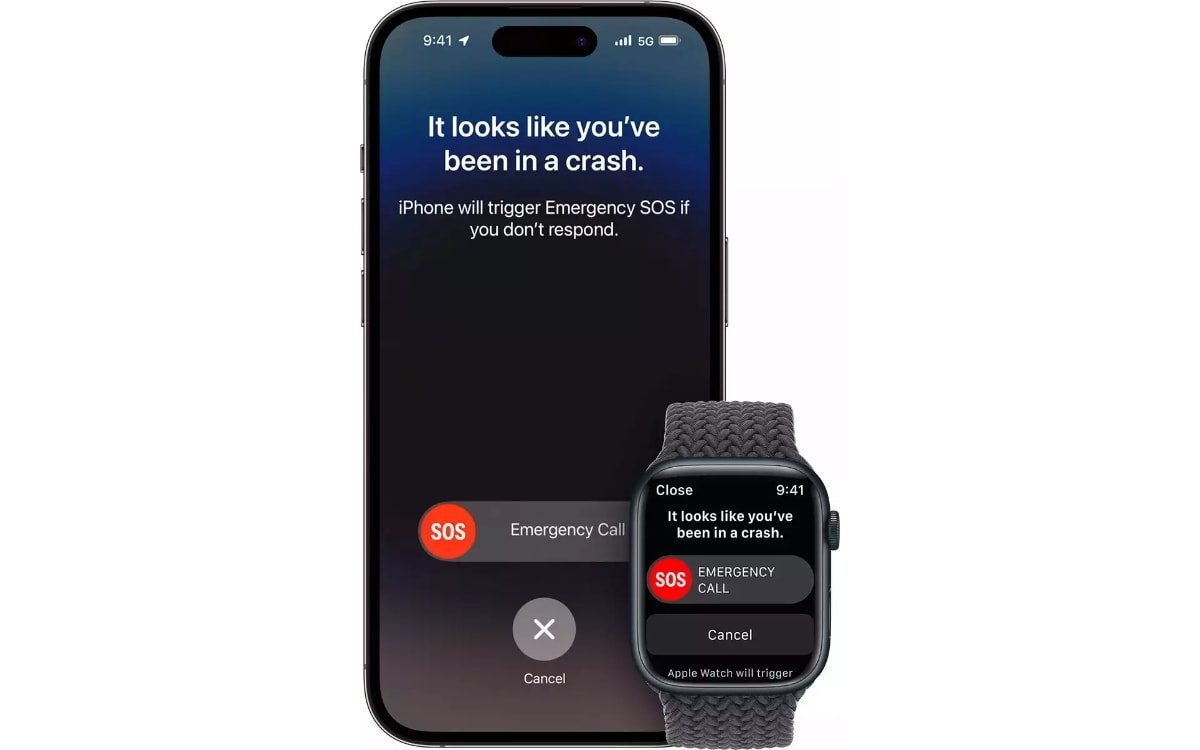AppleInsider may earn an affiliate commission on purchases made through links on our site.
Apple packed out January with expected new devices, it failed to deliver some others, and it did everything without any event — even though it apparently planned to.
January has been a quiet month for Apple News for years, but not this time. Instead, Apple kicked off 2023 with a parade of new devices, the likes of which would ordinarily have filled up an Apple Park event.
Only, those press releases and accompanying emails that Apple sent to AppleInsider all spoke of “today’s event.” And then Apple dropped a video about the new devices.
This wasn’t the usual 30-second advert, this was a deleted scene from what appears to have been intended to be a full event. Metadata in the video soon showed it was made in October 2022.
There wasn’t an event then, but if there had been, it would’ve been more than this 18-minute segment. It would have presumably featured at least one more thing.
And midway through January, we found out what it may have been — because the HomePod was back at last. It’s not known whether Apple made a video for it, nor just when the company decided to revive the discontinued device, but it came back.
It looks incredibly like the original, and the first reviews say it sounds like it too, but there are subtle differences — including the fact that it is slightly cheaper than it previously was.
Small but significant differences
The revived or revamped HomePod has a larger display at the top, and it’s also now inset the same way the touch screen is on a HomePod mini. On the inside, Apple has removed some components, presumably to cut costs, but also improved what’s left, presumably to match the original HomePod’s audio quality.
At the same time, it’s got to be practically impossible to tell the
The other type of speaker
There was also news for speakers, as in People who speak professionally, and it wasn’t so great. Apple knew it wasn’t going to a barn-burner either, because it initially held back the launch from last year, and then only let it out with the tiniest of mentions anywhere.
It was the replacement of actors for audiobooks. Instead of the costly hiring of an actor and booking a very great deal of studio time, Apple has begun letting artificial intelligence technology create a voice for audiobooks.
The only thing is, these AI voices are surprisingly good. It’s not like having Siri read out a novel, as it’s much better than that.
And Apple says that no, it isn’t about replacing actors. It’s about creating audiobook versions of more books, titles that might not warrant the investment that such projects usually take.
Your opinion of this may depend on whether you’re an author or an actor, but at least one of those is not going to be impressed with Apple.
Which you could say goes double for the advertising industry, which appears to have had it up to here with Apple’s own ad business growing as its privacy features knock back third-party firms.
Hypocrisy and causing people problems
“While there are no shortage of extremists attacking our industry from the outside, there are some attacking it from the inside out,” said David Cohen, CEO of the Interactive Advertising Bureau at its annual conference. “Most notably, Apple exemplifies the cynicism and hypocrisy that underpins the prevailing extremist view.”
Cohen says advertisers asked Apple to not have its own apps ask users for permission to “personalize” their experience while forcing other firms to ask about tracking.
“It can’t be that ‘personalization’ in the Apple ecosystem equals ‘tracking’ outside of it,” he said. “Apple basically said, ‘Thank you for the feedback,’ and they did what they did.
“So, we want to call it out for the hypocrisy that it is, and we want to invite them back to the table,” he continued.
Losing money
While advertisers are losing money because of what Apple is allegedly doing to them, Goldman Sachs took a hit because of what Apple is doing with it. Specifically, the Apple Card has proved to be a drag, if not yet an albatross, around the financial firm’s next.
Setting up Apple Card cost a lot of money, and for each new customer who signs up for the card, Goldman Sachs was committed to spending about $350.
Maybe this is why Apple Card has not spread worldwide the way that Apple Pay has.
Apple is a global firm
Wherever you are in the world, we learned in January that if you need to get your iPhone battery replaced, you’d best do it now. From the end of February, all battery replacement prices will rise by about $20.
This increase is global, where previously Apple was able to make a big thing out of how it was keeping iPhone prices the same for the iPhone 14 range as for the iPhone 13 in 2021. But only in America.
Now the battery replacement rise is going to be everywhere, and there are also App Store price rises in certain countries. Eight countries, predominantly in the European Union, will see rises across all app price tiers.
Built-in apps making an impact, or not
By January, it was almost becoming commonplace to learn of lives being saved because of Apple’s new crash detection feature in the iPhone 14 range, the Apple Watch Series 8, Apple Watch Ultra, and Apple Watch SE.
However, it was also definitely becoming commonplace to hear of lives that weren’t even in danger when crash detection went off. Emergency services in Japan reported getting hundreds of false alarms from skiers who presumably couldn’t reach their devices in time to cancel calls.
It is a problem, doubtlessly, but crash detection is saving lives and it does mean people are getting help faster than they would have. That speed can be the difference between life and death, and can help save people with life-changing injuries.
In one case this January, though, there weren’t just people involved in a crash, there were also horses. A car and horse trailer left the road in Tasmania, injuring five people plus a sixth who was hurt badly enough to need to be flown to hospital.
The emergency services got to the crash scene within eight minutes of the accident, specifically because of the iPhone 14’s crash detection. It was rapid, and it was hopefully fast enough to help the person who needed airlifting, but unfortunately, the horses did not survive.
More bad news
It was also a bad month of many, many thousands of workers in big tech companies, as over and over we heard of cases where they stopped getting to be workers in those firms.
Amazon laid off 18,000, while Microsoft and Google each made over 10,000 people redundant. Spotify laid off 6% of its workforce, and also announced the news in a blog post where the CEO talked about how at least he’d now be able to get on with the bits of his job that he likes.
Big Tech is going through an enormous change, and Big Tech is not handling it well at all.
Unless you’re Apple. While Apple has laid off some workers in the the retail sections they manage within Best Buy, and it has laid off some 100 recruiters, otherwise it’s escaped the mass redundancies.
It may still be early days, but it’s looking as if Apple’s long-term view, and its introduction of more careful, slower recruitment, is paying off for it and its staff.
Lead from the top
Perhaps related to the climate around all the layoffs, Tim Cook asked Apple to effectively cut his next year’s salary by 40%.
He won’t be out on the streets.


